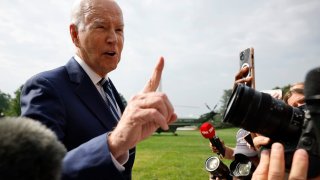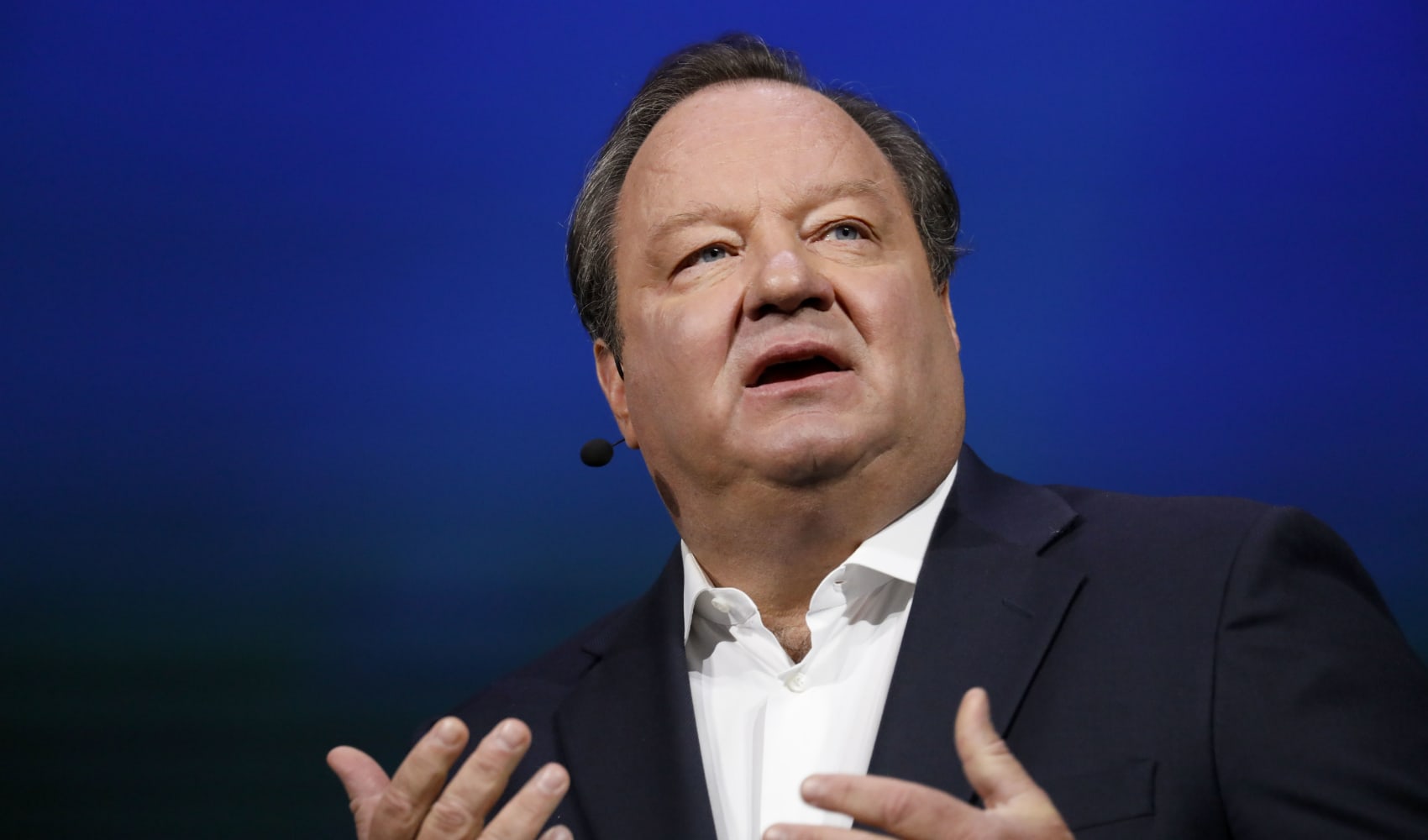
- As President Joe Biden pushes for reelection, his administration has been exploring all of its options to forgive student debt.
- He'll need to overcome voters' disappointment that his sweeping loan cancellation plan never materialized after the Supreme Court struck it down, experts say.
The Supreme Court's conservative majority in June ruled that President Joe Biden didn't have the authority to cancel student debt for millions of Americans.
He's still trying.
In what one legal scholar described as "a very direct confrontation with the Court," Biden held a press briefing from the White House just hours after the justices issued their verdict.
Get Philly local news, weather forecasts, sports and entertainment stories to your inbox. Sign up for NBC Philadelphia newsletters.
"Today's decision has closed one path," the president said. "Now we're going to pursue another."
That alternative plan, which has become known as Biden's Plan B, could forgive student debt for as many as 10 million people, according to one estimate. The president may try to deliver that relief before November.
As Biden prepares for the 2024 presidential election and tries to turn around his recent struggles with young voters, his administration has explored all of its existing authority to leave people with less student debt.
Money Report
More from Personal Finance:
Why egg prices are on the rise again
A 12% retirement return assumption is 'absolutely nuts'
Here's where prices fell in December 2023, in one chart
In addition to the president's second attempt to deliver sweeping student loan cancellation, the U.S. Department of Education, under his tenure, has made a number of improvements to the government's current debt forgiveness programs. As a result of those changes, more than 3.7 million Americans have received loan cancellation, totaling $136 billion in aid.
"President Biden has done more to implement student loan forgiveness than any previous president," said higher education expert Mark Kantrowitz.
A spokesperson for the White House did not respond to a request for comment.
Forgiveness may drive 'votes or disengagement'
During the 2020 presidential campaign, Biden promised voters that he'd forgive a large amount of student debt if he made it to the White House. That vow likely played a role in the unprecedented turnout of college students in the election, experts say. Young voters also proved crucial to Biden's success in several key states, including Arizona, Michigan and Pennsylvania.
Ultimately, the Supreme Court blocked the president from fulfilling his campaign promise last summer, ruling that his $400 billion loan cancellation plan exceeded the power of the executive branch. That decision came after the Biden administration opened applications for its loan relief of up to $20,000 per borrower and announced to some that it had "fully approved" their relief.
At the very least, that has likely left many young voters feeling frustrated with the political process, said Adam Gismondi, director of the National Study of Learning, Voting, and Engagement at Tufts University, the largest survey of college student voting in the U.S.
"It seemed to be straightforward and achievable, but the political realities often end up complicating proposed policy solutions," Gismondi said. He cautioned that it was far from certain where young voters will stand by November, and if student loan forgiveness "drives votes or disengagement" in the end.
To be sure, voters who support cancellation of the debt likely won't find a more appealing stance in Biden's opponent. Republicans largely oppose debt jubilees.
Former President Donald Trump said at a campaign event last summer that Biden's effort to relieve people of their debts "would have been very unfair to the millions and millions of people who paid their debt through hard work and diligence." While in office, Trump also looked to kill the popular Public Service Loan Forgiveness program, which clears the debt of government and certain nonprofit workers after a decade.
Are current forgiveness efforts enough for voters?
Still, Astra Taylor, co-founder of the Debt Collective, a union for debtors, believes Biden has to do more.
"Over 40 million people were promised cancellation, a number that dwarfs the 3.7 million who have received some measure of relief," Taylor said. "That ratio needs to dramatically change if Biden wants to regain the trust of voters."
But Amanda Taylor, a blogger in St. Louis, doesn't fault the president. (Taylor is not related to Astra Taylor.)
Instead, she blames the GOP-led states that brought the lawsuit challenging Biden's broad-based student loan forgiveness plan, and which the justices ultimately sided with.
"I believe Biden is doing everything within his power to make good on his promise," said Taylor. "So much so, some people believe he is defying the [Supreme Court's] orders." (Taylor, who is 47, graduated with around $20,000 in student debt but has since paid it off.)
Sam Berndt, a computer scientist who lives in Pasadena, California, disagreed that Biden is doing all he can and believes the president has other legal authority at his disposal that he hasn't tapped.
Berndt owes close to $40,000 in student debt, and doesn't know who he'll vote for come November.
In the meantime, he's frustrated that the president is pointing his finger at Republicans and the Supreme Court as his reason for not doing more to address the student loan crisis.
"For the 43 million student loan borrowers, President Biden is at the helm," Berndt said.
Don't miss these stories from CNBC PRO:
- The S&P 500 is officially in a bull market now. Here's how long they typically last
- The early winner in the bitcoin ETF race has raked in $1 billion
- Goldman Sachs names its top stocks for 2024, including this solar company
- CD rates are coming down. Here's where you can lock in yields of nearly 5% for 2 years
- Buy the dip in these bitcoin mining stocks over the next two months, Bernstein says






